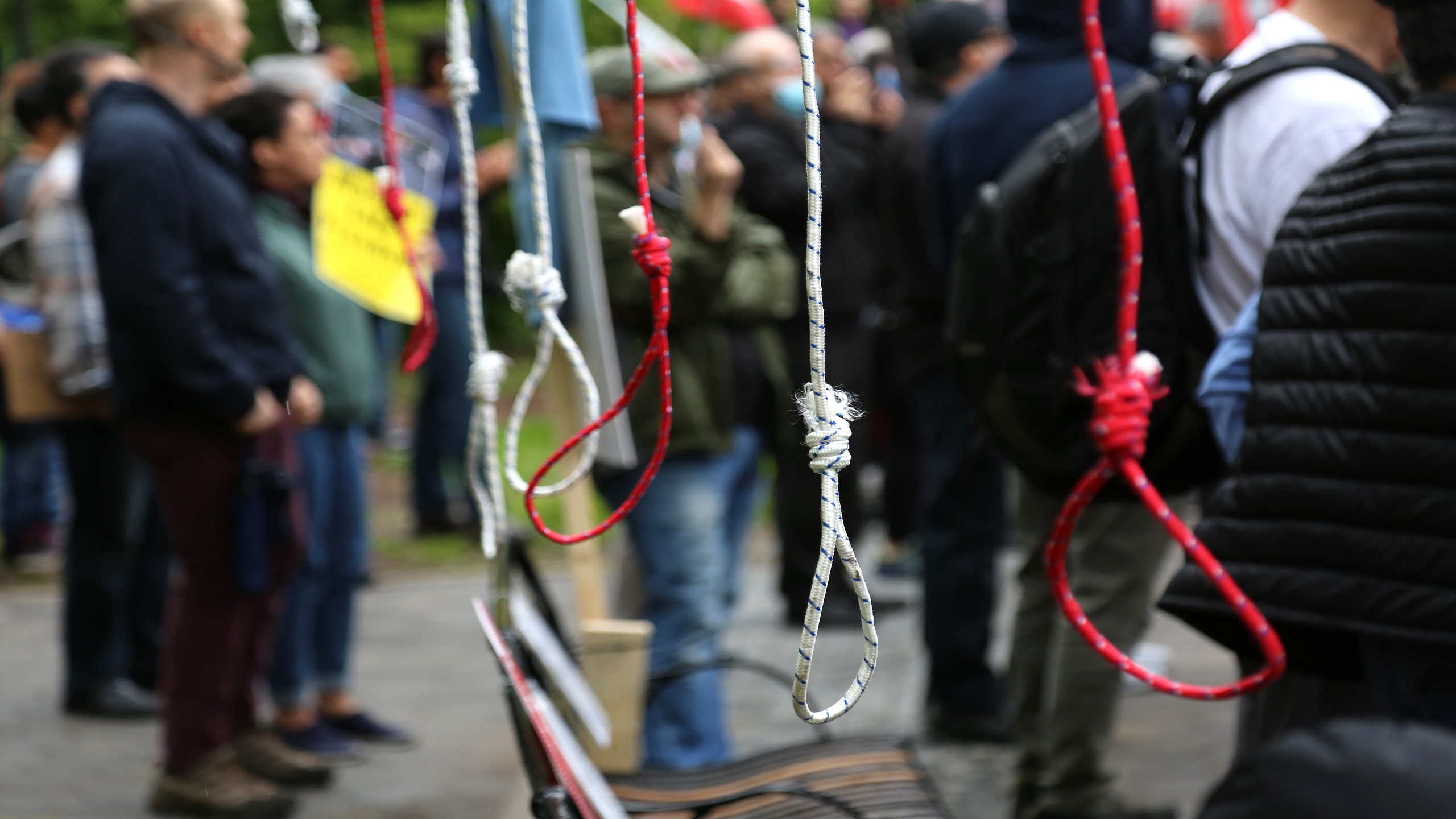After China, MENA Region Leads in Death Penalty Rates Globally
An Amnesty International report shows a sharp increase in executions globally in 2022, with Middle Eastern and North African countries leading the statistics
The Middle East and North Africa region topped the global list for government executions in 2022, a year that witnessed a significant surge in such acts. According to a report by Amnesty International, executions worldwide rose by 53% in 2022 over the previous year, marking it as the year with the most executions since 2017.
The report recorded 20 countries globally that carried out death penalty sentences in 2022. China was excluded due to insufficient reliable data, although it is believed to execute thousands of prisoners annually, exceeding the combined total of all other nations. Among the countries examined, the report confirmed 883 executions, with 90% of these occurring in MENA countries.
“Countries in the Middle East and North Africa region violated international law as they ramped up executions in 2022, revealing a callous disregard for human life,” said Agnès Callamard, Amnesty International’s secretary-general.
Countries in the Middle East and North Africa region violated international law as they ramped up executions in 2022, revealing a callous disregard for human life
“Saudi Arabia executed a staggering 81 people in a single day,” the report stated, adding that Iran and Egypt were also among the MENA nations with high execution rates.
Karl Kaltenthaler, director of the Center for Intelligence and Security Studies at the University of Akron, told The Media Line that the Middle East often imposes severe punishments for crimes that are treated less severely elsewhere. Kaltenthaler, who studies politics and conflict in the MENA region, stated, “The MENA region has some of the harshest penalties for activities classified as crimes by governments in the region.”
He noted that some due process procedures prevalent in many countries are missing in several MENA states, meaning citizens affected by government decisions often lack prior warning about potential life-altering outcomes.
“In general, one is more likely to get indicted for what is defined as a capital crime in MENA states and more likely to be convicted than in most other parts of the world,” he said.
Topping the list, the Islamic Republic of Iran executed 576 people in 2022, a considerable increase from the 314 executed in 2021, according to the report.
Although the majority of executions are based on criminal charges such as drug offenses or murder, the timing of the executions is closely related to political events
Mahmood Amiry-Moghaddam, director of the Iran Human Rights organization and a professor at the University of Oslo, told The Media Line, “Although the majority of executions are based on criminal charges such as drug offenses or murder, the timing of the executions is closely related to political events.” According to Amiry-Moghaddam, “The aim of the executions is not to combat crimes but to ensure the survival of the regime.”
Amiry-Moghaddam noted that following the outbreak of women’s rights protests in September 2022, Iranian authorities have executed more than two people per day on average, a trend continuing into 2023.
“According to Iran Human Rights reports, at least 247 people were executed between January 1 and May 15, 2023. So it is getting worse,” Amiry-Moghaddam noted.
Kaltenthaler attributed the 2022 rise in executions in Saudi Arabia mainly to terrorism, drug-related crimes, and other charges. “The single largest increase in executions in Saudi Arabia seemed to be with those accused of crimes related to acting on behalf of ISIS, al-Qaida, and the Houthis,” he said, pointing out the Saudi government’s heightened concern about potential terrorism in the kingdom.
Regarding Egypt, Kaltenthaler said, “The increased number of executions was related to more Egyptians being convicted in terrorist cases, drug crimes, and murders.”
Amiry-Moghaddam describes the death penalty as “the main instrument of political suppression, which authoritarian systems use to appear more powerful and make the people feel powerless.”
He noted that human rights, and particularly the issue of the death penalty, often lack prominence in international politics.
“Most Western governments don’t maintain a long-term strategy in their international relations with the Middle East. A more sustainable approach would involve taking into account the rights of the people,” said Amiry-Moghaddam.


